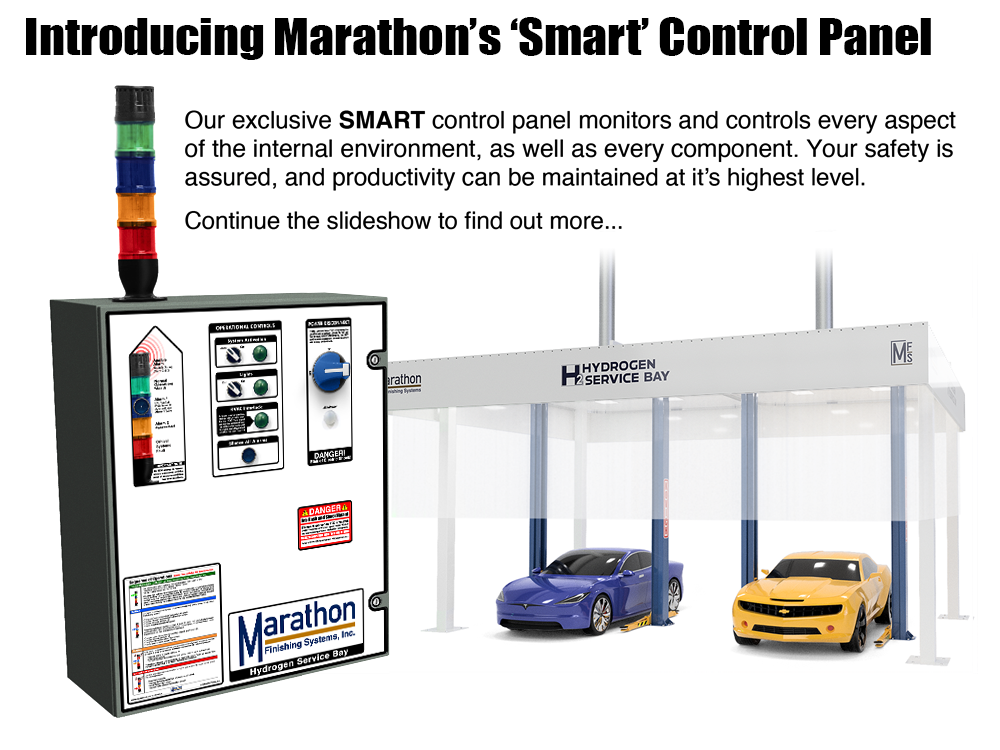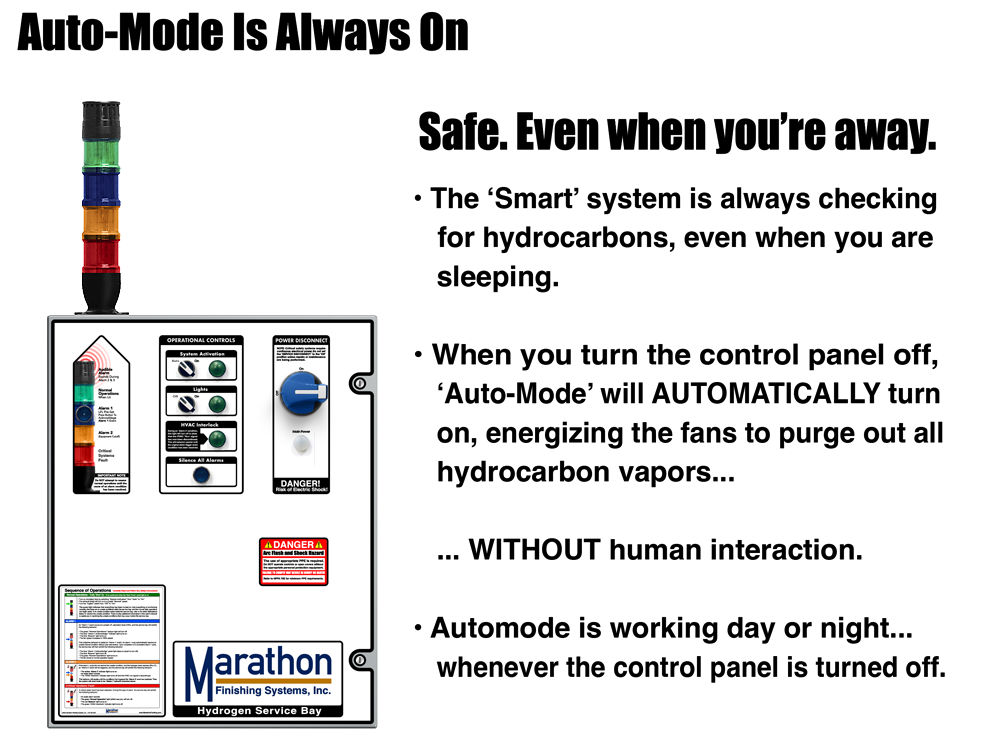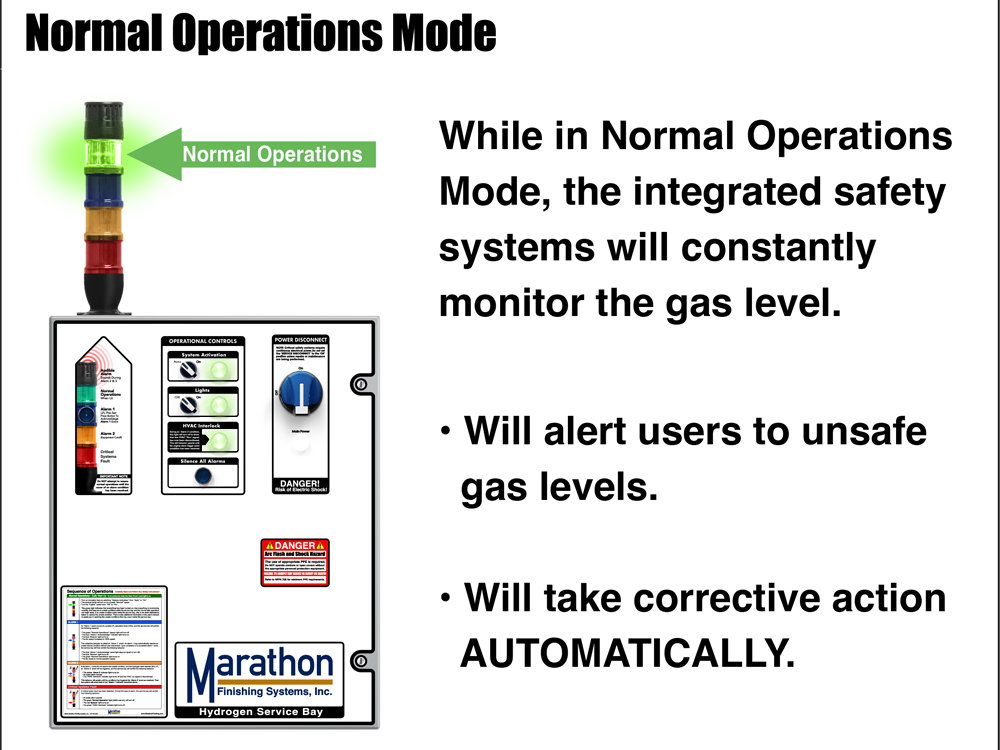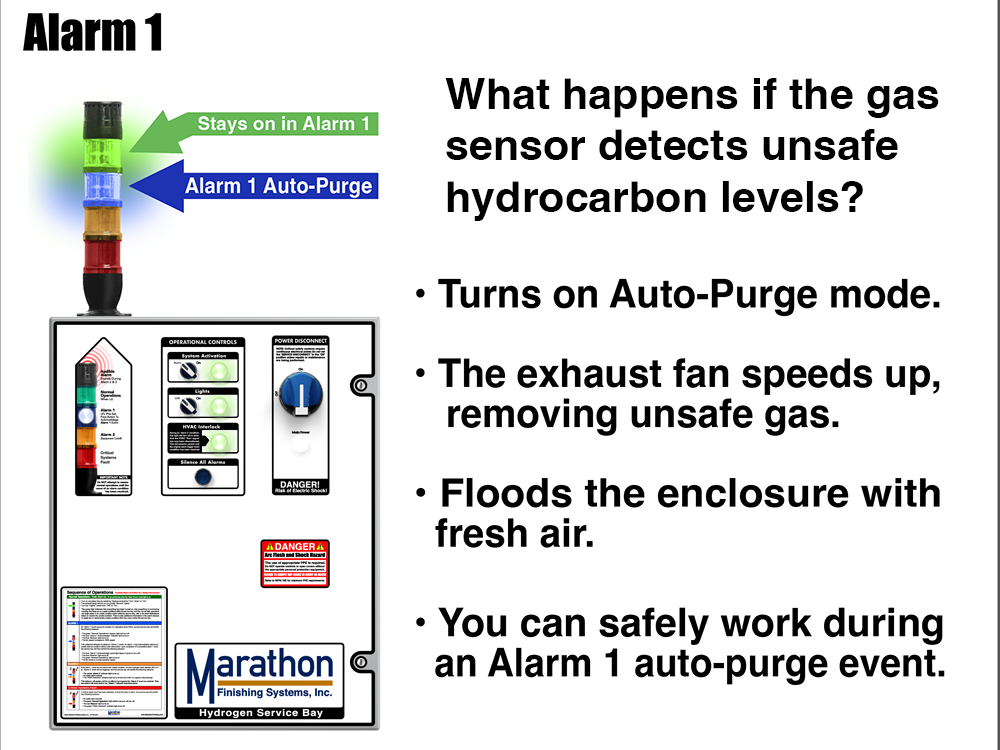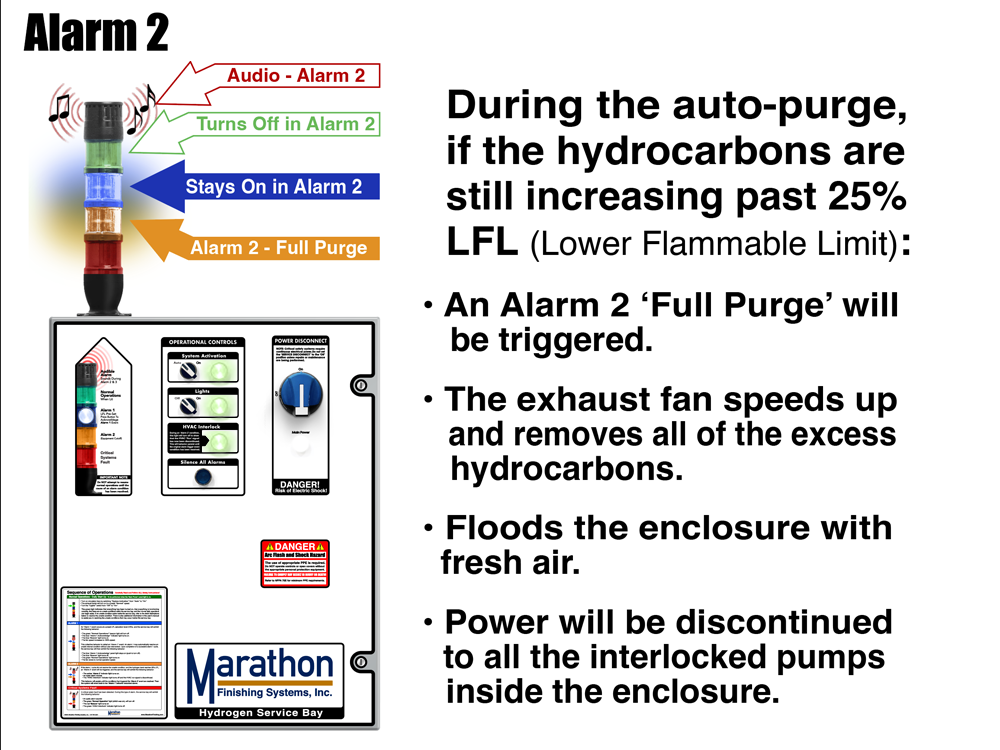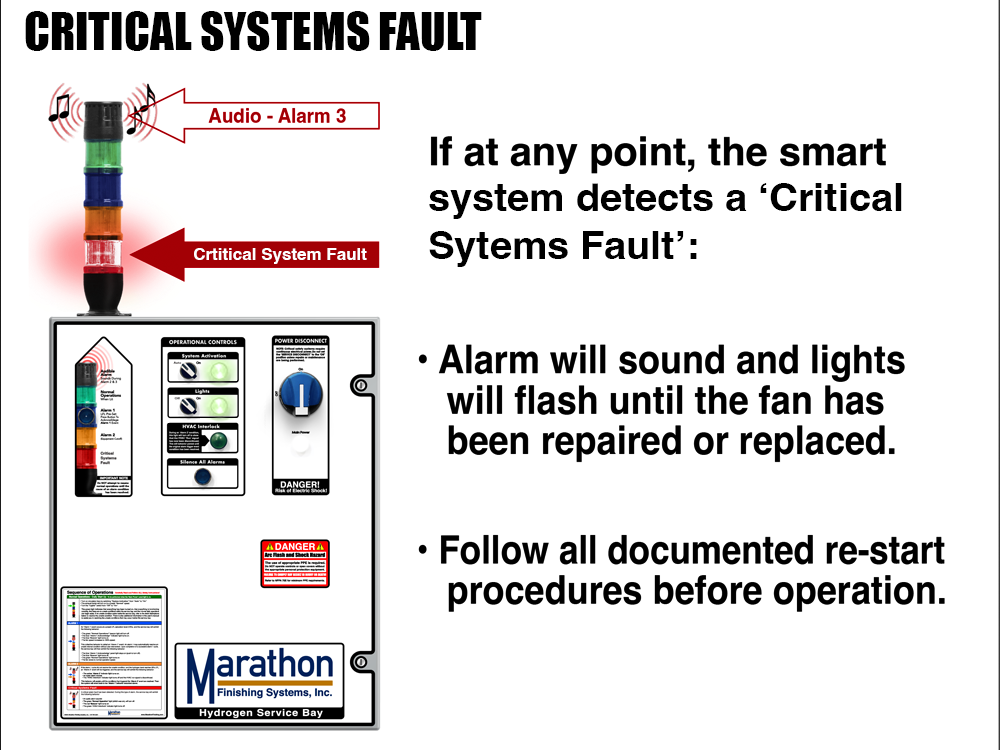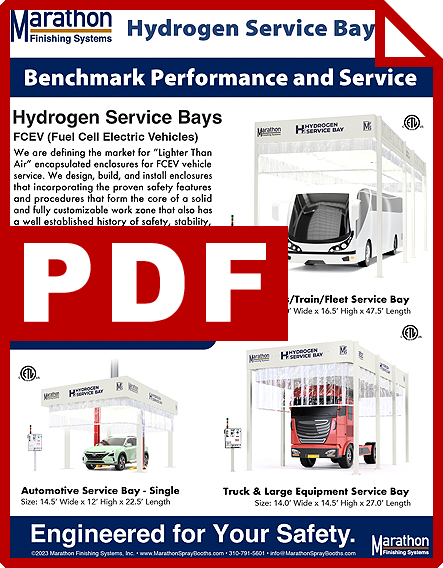Bus & Fleet Hydrogen Service Bays
Engineered to Meet or Exceed Established Safety Standards.
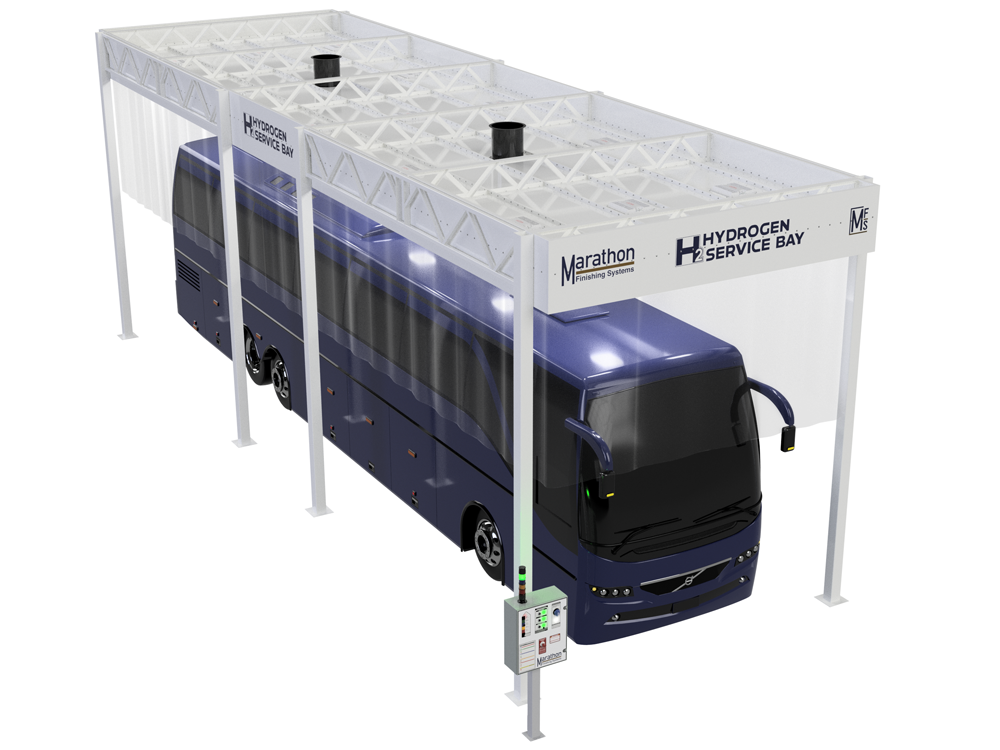
Image 1
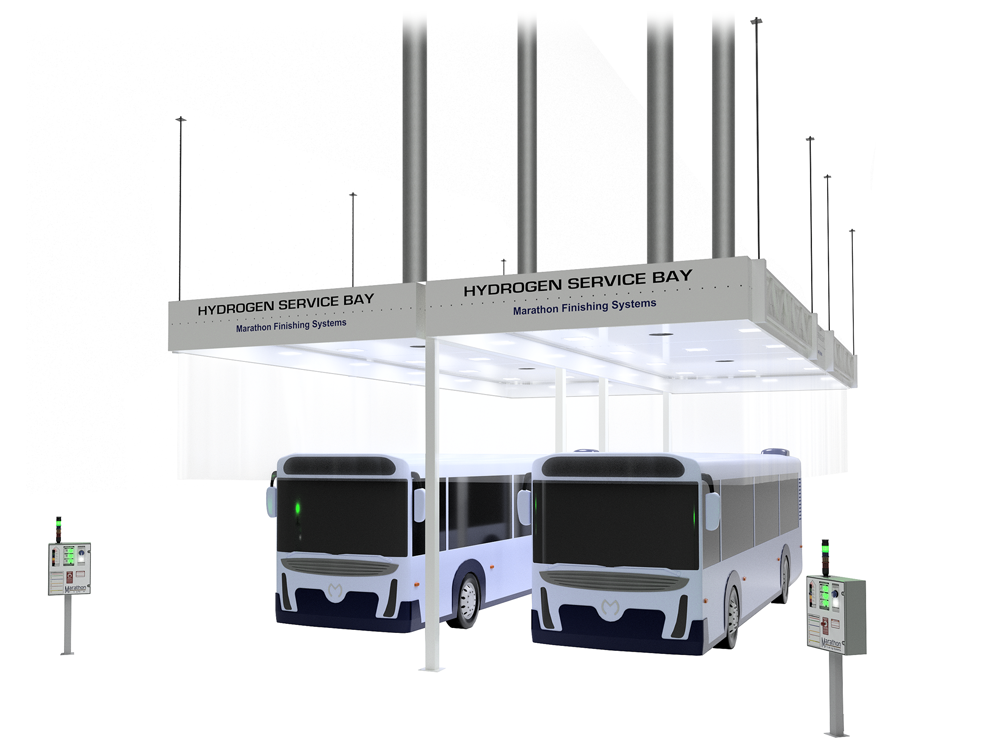
Image 2
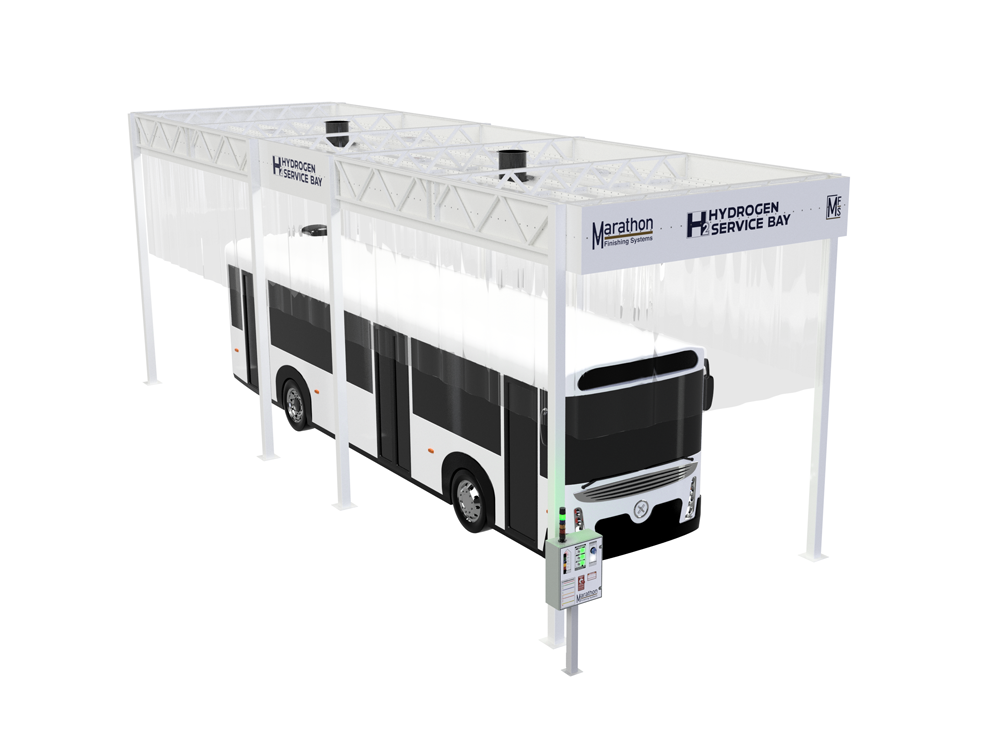
Image 3
Our Bus & Fleet Hydrogen Service Bays
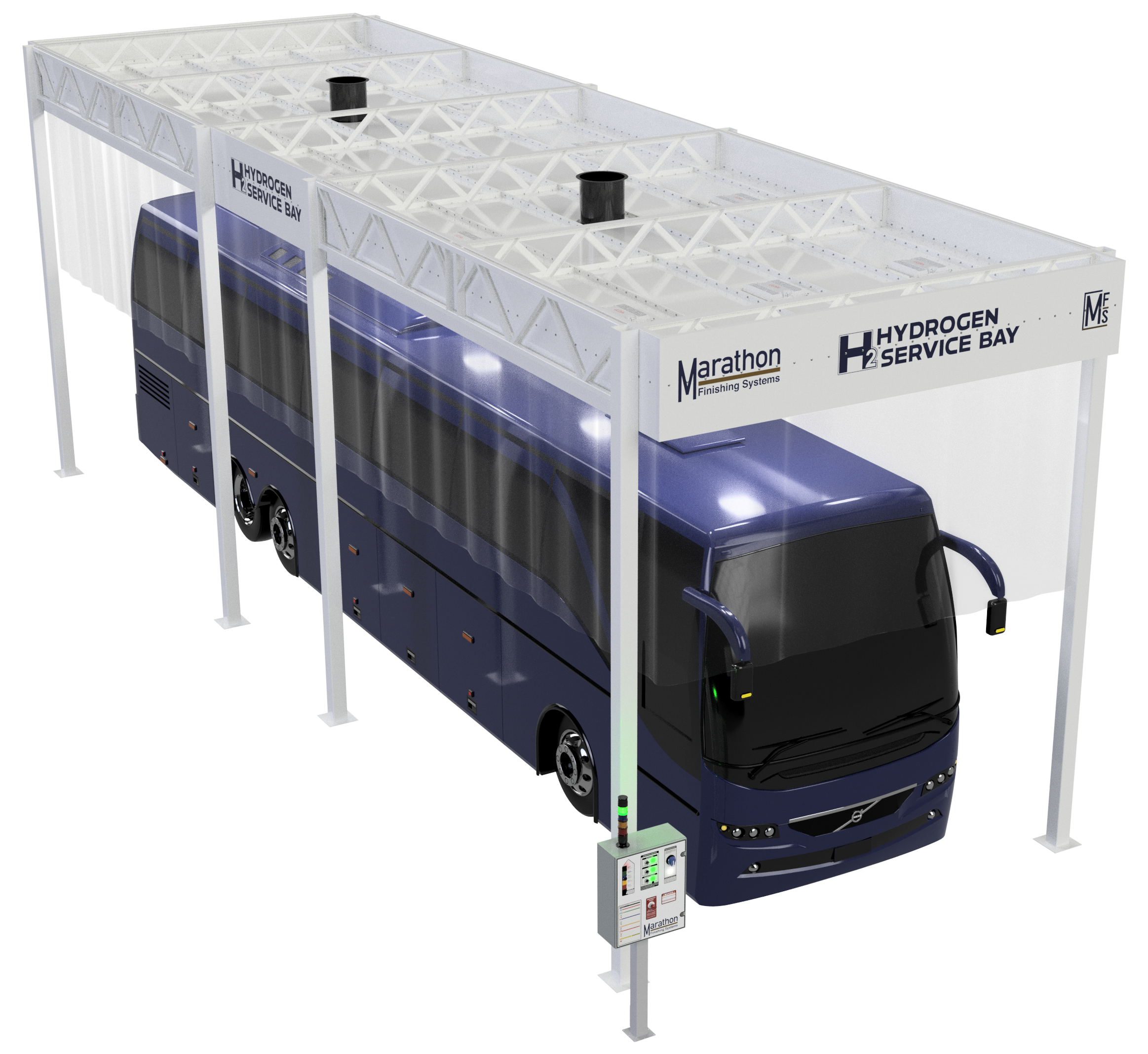
Our largest standard FCEV Hydrogen Service Bay model (we can build any custom size, however), this model works best for large volume, large vehicle FCEV Service Facilities. This model has the same safety systems and features as our other models.
If you are a strictly standard automotive FCEV mechanic service facility, you may want to take a look at our Automotive FCEV Hydrogen Service Bays.
If you service Truck FCEVs, check out our Truck & Equipment FCEV Hydrogen Service Bays.
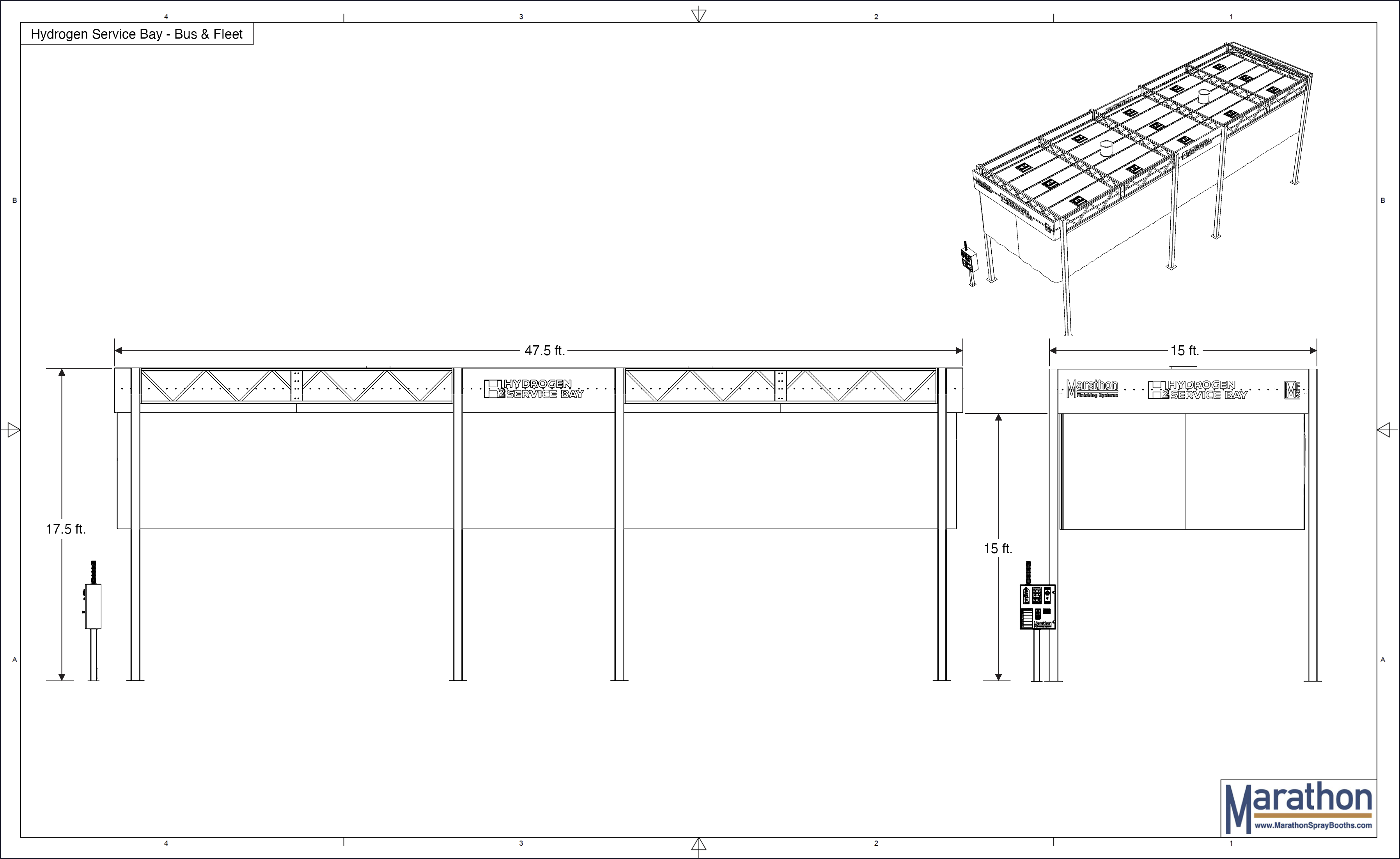
Marathon Finishing’s Dedication to Code Compliance
We’ve Done The Hard Work, So You Don’t Have To!
Every Marathon Finishing Hydrogen Service Bay complies to the the following safety and building standards:
- 2018 International Building Code
- 2018 International Existing Building Code
- 2018 International Fire Code
- 2017 National Electric Code
- 2018 International Mechanical Code
- 2023 NFPA 2 (Hydrogen Technologies Code)
- 2018 IFC for Purging and Repairs
Your safety is our primary concern.
Understanding Hydrogen Fuel Cell Automotive Repair
How Is FCEV Repair Different From Standard Auto Repair?
To understand the repair process for FCEVs, it is important to understand how these vehicles are powered. These vehicles have stacks of fuel cells that contain hydrogen. Instead of burning the hydrogen for fuel, the cells chemically fuse the hydrogen molecules with oxygen from the air. This process produces electricity, which then is used to power the vehicle’s electric motors. The only byproduct that is produced is water, resulting in pollution-free emissions.
How Can An H2 Service Bay Ensure Worker Safety?
Hydrogen is flammable, and can ignite if it comes into contact with an electrical spark. This makes it important for service providers to have safety systems in place before technicians begin their work on FCEVs. Unlike petroleum products that are heavier than air and will pool on the ground if released, hydrogen is a lighter-than-air fuel that, if released, rises upward, pooling on the ceiling. If you have service bays with openings at the top, the hydrogen fuel will escape elsewhere into your shop and may pose a risk of ignition. If hydrogen comes into contact with lighting fixtures, for example, it can ignite and cause a fire. Properly capturing and isolating released hydrogen during service and maintenance procedures is critical for worker safety!
Before you can provide service for an FCEV, you must first drain all of the hydrogen out of the fuel cell stack. The National Fire Protection Association has released guidelines for the handling of H2 fuel so that people who work with or around hydrogen remain safe.
Because of the potential risks of ignition from an electric spark or heat source, it is important for facilities that offer repair and maintenance services to have dedicated H2 fuel service bays installed. Marathon’s H2 Service Bays adhere to all of the standards as outlined by the National Fire Protection Association and are enclosed so that hydrogen cannot escape from the top or come into contact with light fixtures or electrical wiring that could cause hydrogen to ignite.
The requirements for servicing FCEVs are highly specific, making it important for repair facilities and dealerships to utilize H2 service bays while performing standard service and maintenance operations. Having H2 specialized service bays will ensure worker safety by eliminating the chance of hydrogen ignition. If you have H2 bays installed in your repair facility or dealership, you will be prepared to safely provide mechanical services for FCEVs. If you are located in California, it is especially important for you to be able to have the capabilities of servicing fuel cell vehicles. Having H2 service bays can help you to expand your customer base and stand out from your competitors, so that you can enjoy robust future sales and an excellent return on your investment.
Contact Marathon Today For A Free Quote
As we all look for ways to reduce our environmental footprints, the popularity of FCEVs will only increase, and FCEVs will become more popular and continue to spread across the U.S., and the world. The importance for dealerships and repair facilities everywhere to be prepared by installing H2 service bays will only increase. Call Marathon today for a free Hydrogen Service Bay quote at 310 791-5601.
Find out today how quickly we can get you up and running!
Call Us for a Quote at 310 791-5601
Check Out Our Amazing ‘Smart’ Control Panel
